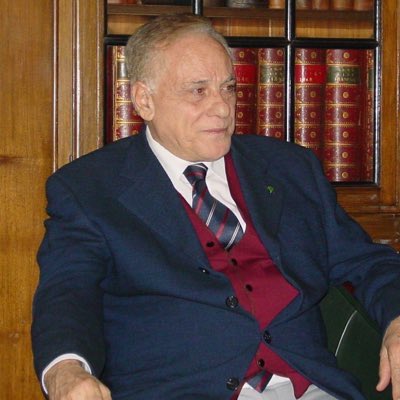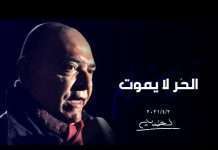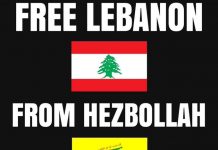The War in Lebanon Was Not a Civil War
Etienne Sakr – Abu Arz/April 16, 2025
إتيان صقر – أبو أرز: لم تكن حربًا أهلية
16 نيسان/2025
صدر عن رئيس حزب حراس الأرز – حركة القومية اللبنانية، اتيان صقر، البيان التالي:
في الذكرى الخمسين لاندلاع الحرب على لبنان، تحدّث معظم القادة اللبنانيين عن هذا الموضوع، لكنّهم جميعًا وقعوا في الخطأ ذاته، إذ وصفوا تلك الحرب بـ”الأهلية”، أي مجرد قتال بين اللبنانيين، متناسين الأطراف الخارجية التي خططت لتلك الحرب، ودعمتها، وشاركت فيها.
أول من أعلن الحرب على لبنان، رافعًا شعار “طريق فلسطين تمرّ في جونيه”، كان ياسر عرفات ومنظماته الإرهابية، وبتخطيطٍ من الإدارة الأميركية آنذاك، ممثلةً بوزير خارجيتها هنري كيسنجر، وبدعمٍ من الأنظمة العربية، وتواطؤٍ من الدول الأوروبية. وكان الهدف إعطاء لبنان للفلسطينيين كوطن بديل. لكن، وخلافًا لكل التوقعات، تمكّنت المقاومة اللبنانية، بشجاعةٍ أسطورية، من دحر الفلسطينيين وإفشال ذلك المخطط الجهنمي… فأين هي الحرب الأهلية التي يتكلمون عنها؟
وفي محاولةٍ لتصحيح خطأها وإيقاف الحرب التي أشعلتها، أرسلت الإدارة الأميركية، بدعمٍ عربيّ كامل، الجيش السوري إلى لبنان تحت مسمّى “قوات الردع العربية”، لكنه سرعان ما تحوّل إلى جيش احتلال، رافعًا شعار “لبنان جزء من سوريا”. فواجهته المقاومة اللبنانية وطردته من مناطقها عام 1978، تمهيدًا لطرده من كل لبنان عام 2005… فأين هي الحرب الأهلية التي يتكلمون عنها؟
لم يشأ الجيش السوري مغادرة لبنان قبل أن يسلّمه لقمةً سائغة للاحتلال الإيراني، ممثلًا بـ”حزب الله”، الذي تمكّن من السيطرة على البلاد، رافعًا شعار “لبنان جزء من الأمة الإسلامية الكبرى التي يديرها سيّد الزمان آية الله الخميني”. فتصدّت له المقاومة اللبنانية، ممثلةً بجيش لبنان الجنوبي، من عام 1985 إلى عام 2000، ثم جاءت إسرائيل عام 2024، وقضت على معظم قواته البشرية والعسكرية… فأين هي الحرب الأهلية التي يتكلمون عنها؟
صحيح أن نزاعات عسكرية حصلت على هامش الحروب الرئيسية المذكورة أعلاه، بين بعض القوى والأحزاب والطوائف اللبنانية، ويُعْزى ذلك إلى تعدد الميليشيات ذات المشارب والعقائد المختلفة، إضافةً إلى غياب دولة مركزية قوية وجيش وطني قادر على ضبط الأمن وكبح جماح تلك الميليشيات.
لقد غاب عن بال كل الذين وصفوا الحروب على لبنان بـ”الأهلية” أن هذا التوصيف الجائر يُحمّل اللبنانيين وحدهم مسؤولية تلك الحروب، ويمنح الأطراف الخارجية المعتدية علينا براءة ذمة، وبخاصةٍ الحرب الفلسطينية التي منها تناسلت باقي الحروب. وعلى هذا الأساس، أطلقنا الشعار: “لن يبقى فلسطيني على أرض لبنان”، على أن يبقى هذا الشعار ساري المفعول حتى تحقيقه.
لبيك لبنان
إتيان صقر – أبو أرز
The War in Lebanon Was Not a Civil War
Etienne Sakr – Abu Arz/April 16, 2025
The following statement was issued by Etienne Sakr, President of the Guardians of the Cedars Party – Lebanese Nationalist Movement:
On the fiftieth anniversary of the outbreak of the war on Lebanon, many Lebanese leaders addressed this historical milestone. However, they all fell into the same error—describing the war as a “civil war,” implying it was merely a conflict among the Lebanese themselves. This characterization dangerously ignores the undeniable role of external powers that planned, supported, and participated in the aggression against Lebanon.
The first to declare war on Lebanon, under the infamous slogan “The road to Palestine passes through Jounieh,” was Yasser Arafat and his terrorist organizations. This assault was planned by the U.S. administration of the time, led by Secretary of State Henry Kissinger, and backed by Arab regimes and complicit European governments. The goal was to hand Lebanon over to the Palestinians as an alternative homeland. But against all odds, the Lebanese Resistance, with legendary courage, defeated the Palestinians and foiled this diabolical plot. So where is the “civil war” they keep talking about?
In an attempt to fix its own blunder and stop the war it ignited, the U.S. administration—with full Arab support—sent the Syrian army into Lebanon under the guise of the so-called “Arab Deterrent Forces.” This force quickly transformed into a full-fledged occupation army, raising the slogan “Lebanon is part of Syria.” The Lebanese Resistance fought back and expelled it from its regions in 1978, paving the way for its final withdrawal from all Lebanese territory in 2005. So where is the “civil war” they keep talking about?
The Syrian regime refused to exit Lebanon without handing it over to another occupier—this time, the Iranian regime, represented by Hezbollah. This armed proxy quickly tightened its grip over the country, raising the banner “Lebanon is part of the greater Islamic nation led by the Imam of the Age, Ayatollah Khomeini.” The Lebanese Resistance, this time represented by the South Lebanon Army, resisted Hezbollah from 1985 until 2000. Then, in 2024, Israel intervened and decimated most of Hezbollah’s military and human capabilities. So again, where is the “civil war” they are talking about?
Yes, military clashes did erupt at times among various Lebanese factions, parties, and sects. These were side conflicts, fueled by the multiplicity of militias with conflicting ideologies and the tragic absence of a strong central state and a capable national army. But these internal disputes were marginal compared to the major wars waged by foreign forces on Lebanese soil.
Labeling the wars against Lebanon as “civil wars” unjustly places the blame solely on the Lebanese people and grants impunity to the real aggressors—chief among them, the Palestinians, whose war triggered all that followed. That is why we raised the slogan: “No Palestinian will remain on Lebanese soil.” And this slogan will remain in force until it becomes a reality.
Long Live Free Lebanon.
Etienne Sakr – Abu Arz
(Free translation by Elias Bejjani)
















